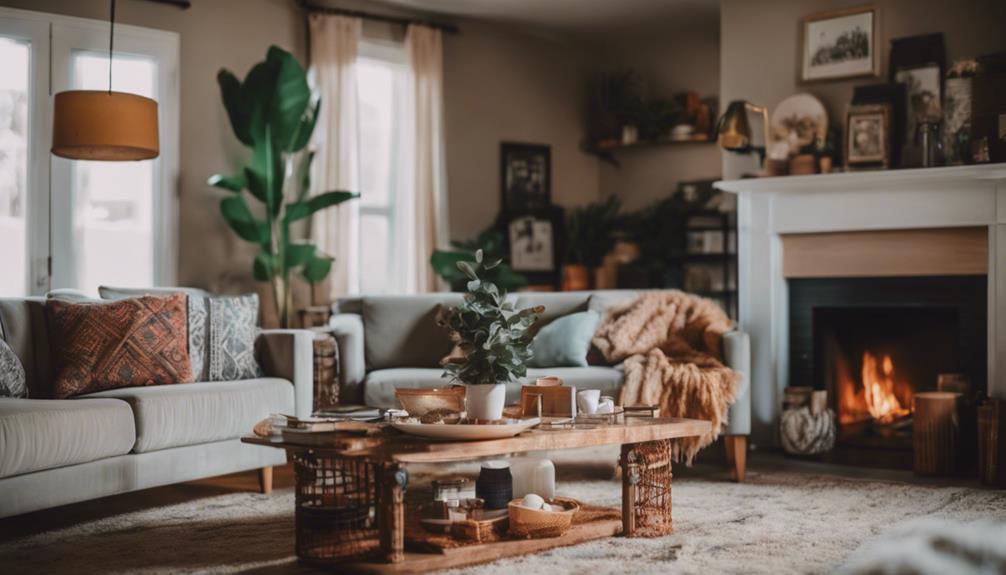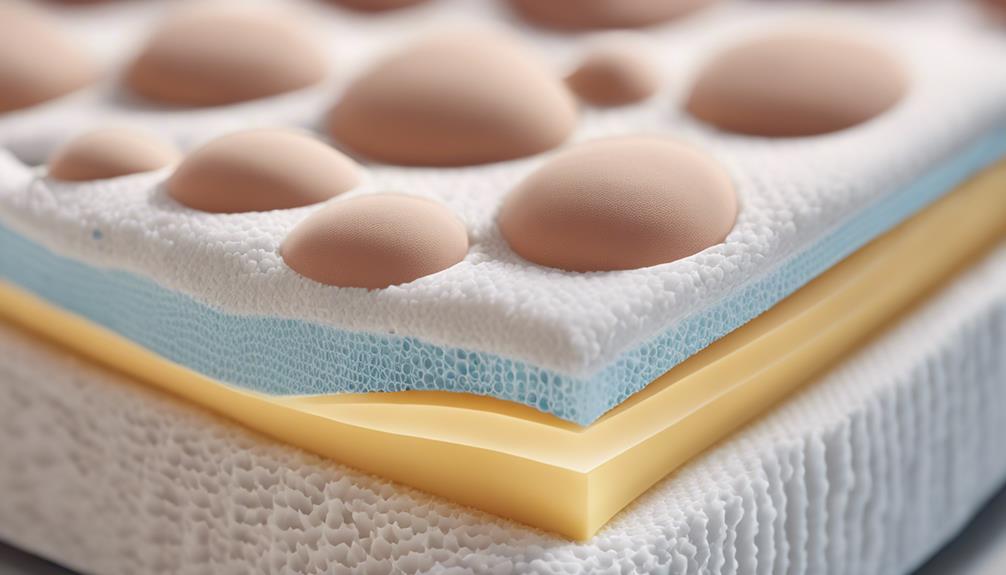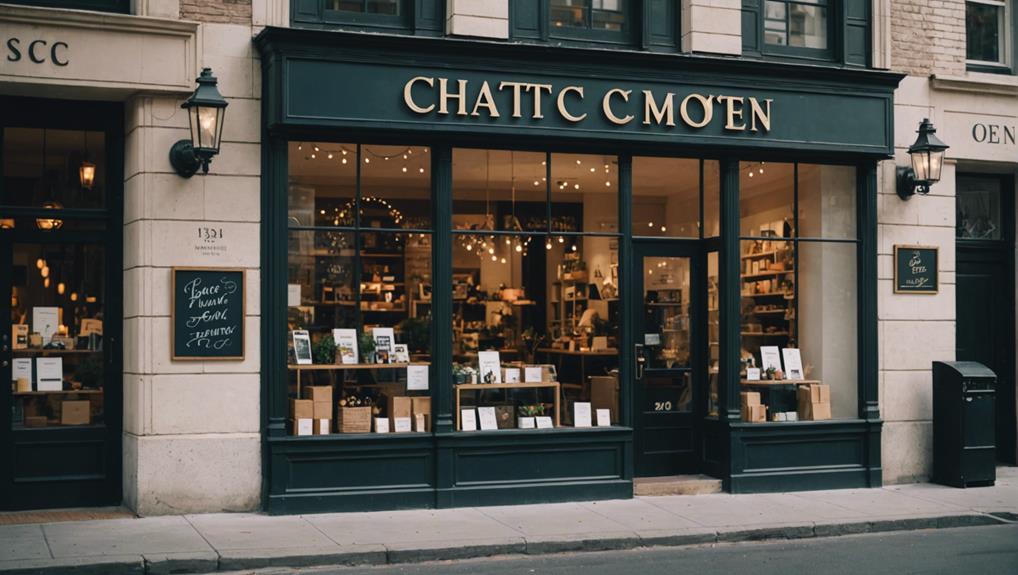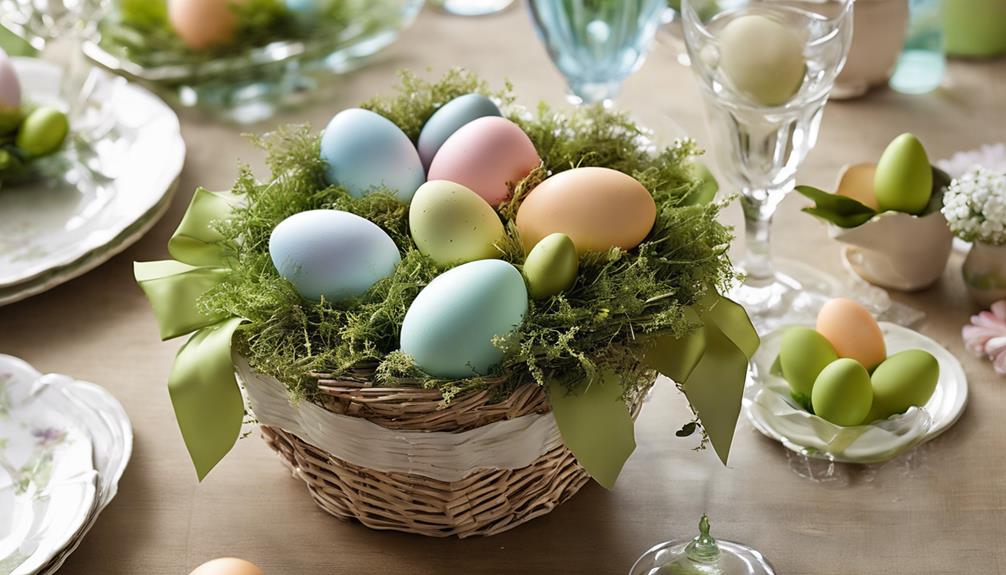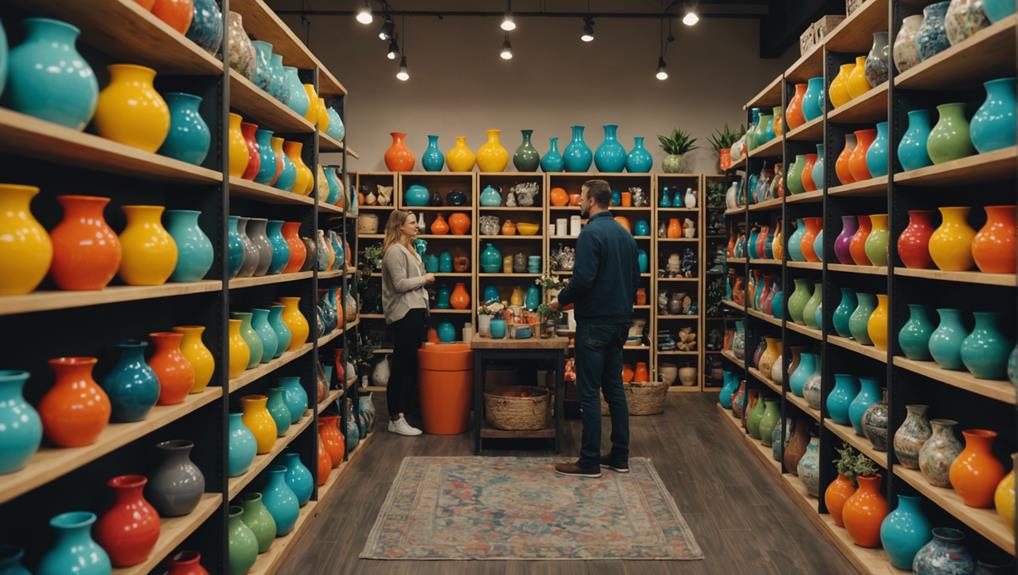Starting interior decorating as a hobby allows us to infuse our living spaces with a personal touch, explore various design ideas, and delve into DIY projects to revamp rooms. It's a creative and fulfilling way to experiment with colors, furniture arrangements, and decor styles. Engaging in this hobby can bring joy, self-expression, and a sense of achievement. Interested in learning more about the benefits and challenges of pursuing interior decorating as a hobby along with tips for turning it into a business? Keep exploring to discover valuable insights and strategies for enhancing your hobby.
Key Takeaways
- Personalizing living spaces through design ideas and decor.
- Enhancing mood and creativity while reflecting personal style.
- Developing design skills in color coordination and layout.
- Experimenting with different trends and DIY projects.
- Achieving a sense of accomplishment through room transformations.
Characteristics of Interior Decorating as a Hobby
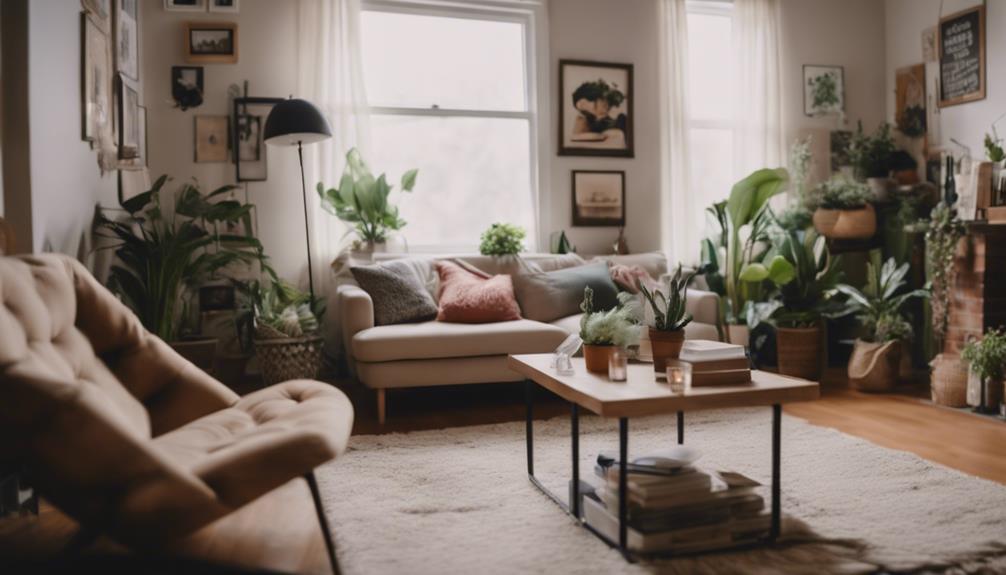
When engaging in interior decorating as a hobby, we immerse ourselves in the art of personalizing and styling living spaces to reflect our unique tastes and preferences. Design ideas play an essential role in this process, guiding us to select colors, furniture, decor, and accessories that harmonize to create visually appealing and functional environments.
As hobbyists, we often find joy in exploring different design trends, experimenting with layouts, and incorporating various styles into our projects. DIY projects, room makeovers, and creative design solutions become our avenues for transforming ordinary spaces into extraordinary ones.
Benefits of Pursuing Interior Decorating as a Hobby
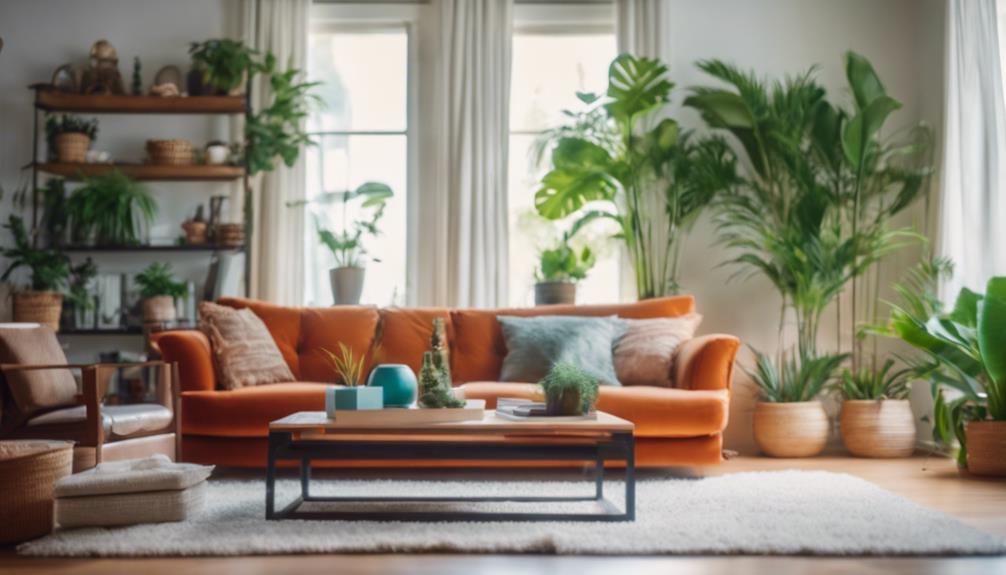
Exploring interior decorating as a hobby offers individuals the opportunity to express their creativity and personalize living spaces in a meaningful way. Here are some benefits of pursuing interior decorating as a hobby:
- Cost-Effective Enhancement: Using your design skills, you can revamp your living space without breaking the bank, adding both beauty and functionality.
- Improved Mood and Satisfaction: By creating a space that reflects your style and preferences, you can boost your mood and overall satisfaction with your home environment.
- Skill Development in Design: Engaging in interior decorating allows you to hone skills in design principles, color coordination, and spatial arrangement, which can be valuable in various aspects of life.
- Sense of Accomplishment: Witnessing the transformation of a room through your design choices can instill a sense of accomplishment and pride, fueling your passion for interior design as a hobby.
Challenges Faced by Hobby Interior Decorators
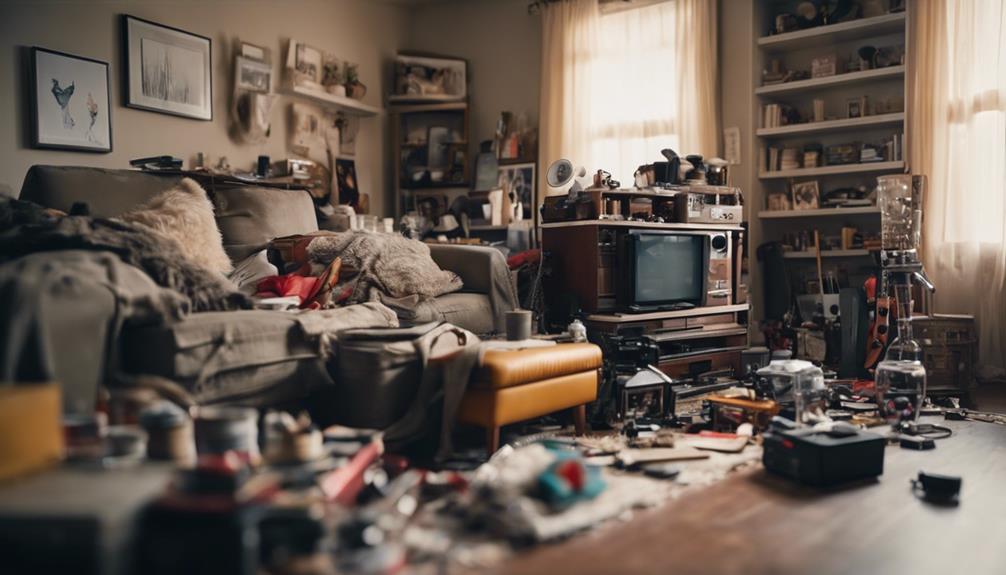
Hobby interior decorators often encounter difficulties in establishing boundaries for unpaid projects, which can blur the lines between personal and hobby-related responsibilities. This can lead to challenges in time management and communication, making it hard to balance these aspects effectively. Additionally, using personal finances for hobby expenses, like purchasing furniture pieces, can create confusion when tracking expenses and profits. Not having a separate business email and phone number may also impact the professionalism and organization of hobby interior decorating endeavors.
Transitioning from a hobby to a business requires a shift in mindset towards profitability, compliance with tax regulations, and establishing clear business boundaries. It's important to address these challenges by setting clear boundaries between personal and hobby-related tasks, organizing finances effectively, and considering the necessary steps to professionalize the hobby. By overcoming these obstacles, hobby interior decorators can navigate the challenges they face and potentially turn their passion into a successful business venture.
How to Turn Interior Decorating Hobby Into a Business
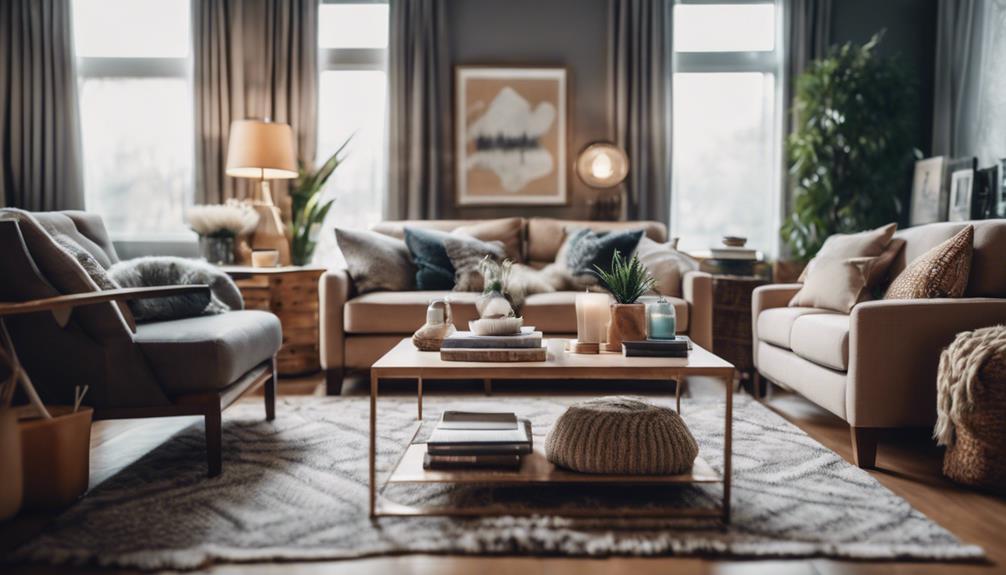
To evolve an interior decorating hobby into a business, it's essential to establish a separate bank account and credit cards for business expenses to maintain financial clarity and organization. Here are some key steps to help you turn your interior design hobby into a successful business:
- Create a Professional Image: Use a professional email address with your own domain to present a polished and credible image to clients.
- Separate Personal and Professional Communication: Obtain a business-specific phone number to separate personal and professional calls and maintain professionalism.
- Establish Business Hours: Set defined business hours that are respected by clients to establish boundaries and structure in your business operations.
- Maintain Financial Stability: Track business growth regularly, invoice clients promptly, and uphold compliance with sales tax obligations to sustain financial stability and professionalism.
Setting Boundaries in Interior Decorating Hobby Projects
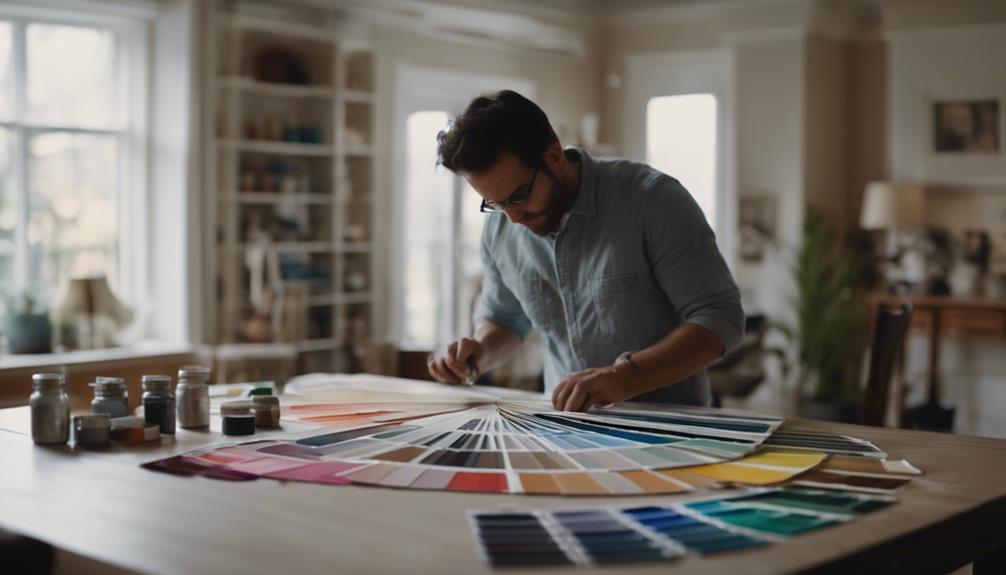
When engaging in interior decorating hobby projects, it's crucial to establish clear boundaries to effectively manage client communication and project expectations. Interior designers benefit from defining communication channels with clients to prevent misunderstandings and ensure a smooth project flow.
By setting boundaries, hobbyists can manage expectations, prevent scope creep, and maintain a balance with other commitments. Time limits and project scopes help hobbyists avoid overcommitting and ensure that projects remain enjoyable without becoming overwhelming.
Clearly outlining payment terms and project timelines creates a professional framework that enhances the overall experience for both the hobbyist and the client. Having a structured approach not only leads to successful project outcomes but also fosters a more fulfilling and rewarding interior decorating hobby.
Resources for Hobby Interior Decorators
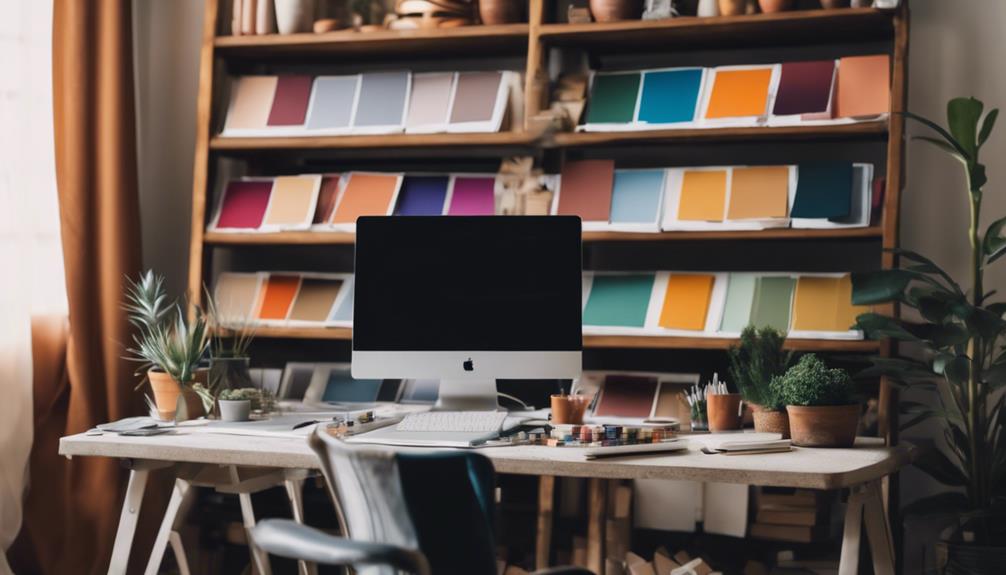
When exploring resources for hobby interior decorators, it's crucial to take into account:
- Budget-friendly decor ideas
- Engaging in DIY decoration projects
- Utilizing online inspiration sources
These tools can provide valuable guidance and inspiration for individuals looking to enhance their home decor skills without breaking the bank.
Budget-Friendly Decor Ideas
Exploring thrift stores and online marketplaces can offer hobby interior decorators affordable furnishings to enhance their spaces creatively. To spruce up your interior decoration without breaking the bank, consider these budget-friendly decor ideas:
- DIY Projects: Get creative and make your own decor pieces using inexpensive materials.
- Thrift Store Finds: Hunt for unique items at thrift stores that can add character to your space.
- Repurposing: Give old items a new life by painting them or updating their upholstery.
- Greenery: Incorporate plants and flowers to bring a fresh and vibrant touch to your decor.
DIY Decoration Projects
Starting on DIY decoration projects can empower hobby interior decorators to infuse their living spaces with personalized and budget-friendly designs. Engaging in hands-on decor projects allows individuals to unleash their creativity and craft unique pieces that reflect their style. To kickstart your DIY journey, consider exploring various tutorials and guides available online that offer step-by-step instructions for different projects. Easily source crafting supplies, tools, and materials needed for your creations. By taking on DIY decoration projects, hobbyists can transform their homes into personalized havens filled with their own handmade touches. Dive into the world of DIY decor and let your imagination run wild as you bring your design ideas to life.
| DIY Decoration Projects | Benefits |
|---|---|
| Hands-on approach | Personalized designs |
| Budget-friendly | Online tutorials available |
| Express creativity | Easy sourcing of materials |
| Unique decor pieces | Transform living spaces |
| Infuse style | Craft with your own hands |
Online Inspiration Sources
Begin a journey through online inspiration sources to fuel your passion for interior decorating and discover new design ideas for your home. Here are four ways you can utilize online resources to enhance your hobby:
- Use Dropmark: Collect photos, websites, and videos to gather interior design inspiration.
- Organize by Area: Utilize online resources to categorize different design ideas for each space in your home.
- Explore Design Principles: Learn how designers implement basic principles by exploring online platforms.
- Apply Concepts: Assess and gather inspiration from online resources to effectively understand and apply various design concepts in your decorating projects.
Balancing Interior Decorating Hobby With Other Commitments
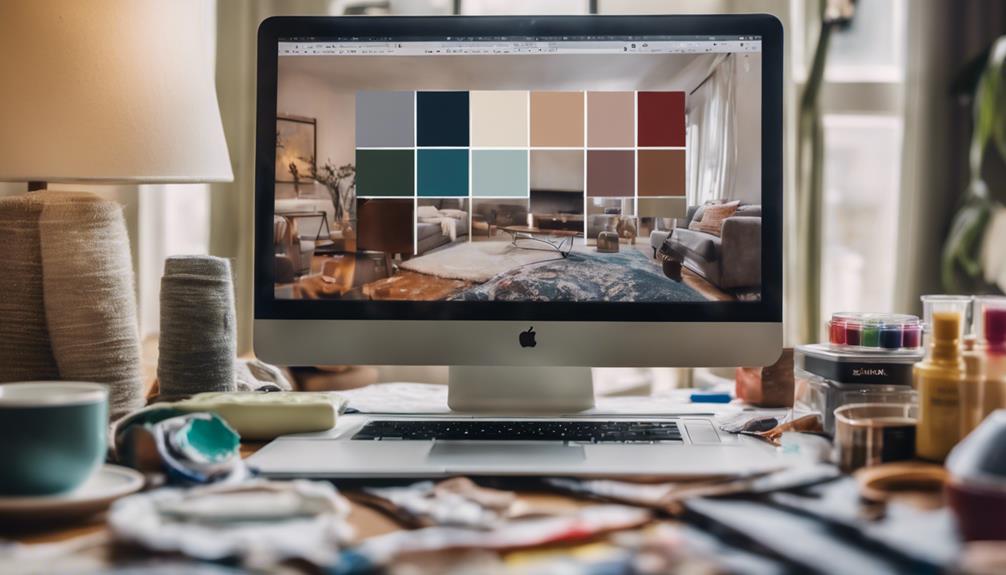
Balancing interior decorating as a hobby with our other commitments requires effective time management skills.
We must prioritize tasks and allocate dedicated time for our decorating projects.
Time Management Tips
To effectively manage our time and balance our interior decorating hobby with other commitments, creating a dedicated schedule is essential. Here are some time management tips to help you make the most of your hobby without neglecting other responsibilities:
- Prioritize tasks: Identify what needs to be done first and focus on those tasks.
- Set realistic goals: Break down your decorating projects into manageable steps to avoid feeling overwhelmed.
- Utilize time management tools: Use calendars, planners, and task lists to stay organized and on track.
- Delegate tasks: Don't hesitate to seek help from friends or professionals to free up time for your hobby.
Setting Priorities Effectively
Effectively managing our time is crucial when balancing our interior decorating hobby with other commitments. To set priorities effectively, prioritize your interior decorating by scheduling dedicated periods for this hobby.
It's imperative to balance decorating projects with other commitments by setting realistic goals and deadlines. Allocate specific days or hours each week to focus solely on your interior decorating hobby. Utilize a planner or calendar to organize your time efficiently between decorating tasks and other responsibilities.
Communication is key; make sure to share your hobby priorities with family members or roommates to secure their support and understanding. By implementing these time management strategies, you can successfully juggle your interior decorating passion with your other obligations.
Finding Creative Solutions
In managing our interior decorating hobby alongside other commitments, we can explore creative solutions to find a harmonious balance. Here are some strategies to help maintain a fulfilling design as a hobby:
- Prioritize tasks based on urgency and importance.
- Schedule dedicated time for decorating projects to guarantee progress.
- Break down larger projects into smaller, manageable tasks.
- Seek assistance from friends or family to lighten the workload and make the hobby more enjoyable.
Tips for Growing Your Interior Decorating Hobby
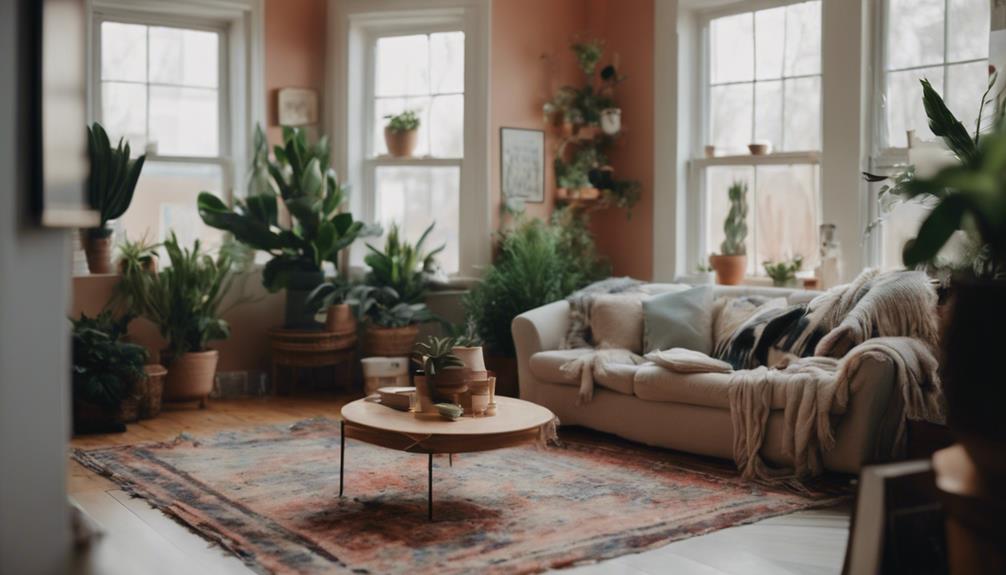
Exploring different design styles is vital to expanding our knowledge and skills in interior decorating. One essential tip for growing your interior decorating hobby is to create a portfolio of your work. A portfolio serves as a visual representation of your style and capabilities, allowing you to showcase your best projects to potential clients or collaborators.
Attend workshops or classes to learn new techniques and stay updated on industry trends. Networking with other decorators or industry professionals can provide inspiration and collaboration opportunities. By surrounding ourselves with like-minded individuals, we open doors to new ideas and perspectives that can enhance our hobby.
Additionally, keeping abreast of the latest materials and technology advancements in the industry is essential for staying competitive and innovative in your interior decorating pursuits. Remember, continuous learning and improvement are key to fostering growth in any hobby, including interior decorating.
Frequently Asked Questions
Is Interior Decorating a Skill?
Interior decorating is indeed a skill. It involves the ability to arrange and style spaces with aesthetic appeal and functionality. This skill encompasses a keen eye for color, texture, and design elements to create cohesive interiors that enhance the atmosphere and reflect the client's taste.
Successful decorators undergo training to refine their skills and stay updated on trends. Mastery of this skill can lead to fulfilling hobby or career opportunities.
What Is an Interior Decorator Called?
We call an interior decorator an interior designer. They specialize in enhancing indoor spaces, focusing on aesthetics, functionality, and space planning.
Interior decorators work with color schemes, furniture, and decor to create appealing environments. They may work on residential or commercial projects, transforming spaces to be visually pleasing and functional.
Interior designers play an important role in shaping the look and feel of various indoor settings.
Is Interior Design a Skill or Talent?
Interior design is primarily a skill that can be developed through education and practice. While talent can enhance creativity, essential skills like spatial awareness and color theory are key.
Successful designers often combine training and experience with a passion for creating beautiful spaces. Although some may have a natural knack for design, most designers acquire skills through education and hands-on projects.
The profession marries artistic vision with technical proficiency, allowing for skill cultivation over time.
Can Interior Design Be an Interest?
Interior design can indeed be an interest for many. It involves creativity, exploration of design concepts, and personalizing living spaces to showcase individual style.
Learning about color theory, furniture arrangement, and lighting can enhance skills in interior design.
Treating interior decorating as a hobby allows for experimentation with different styles, textures, and patterns.
Ultimately, it can lead to the creation of unique and inspiring living spaces that reflect one's personality and preferences.
Conclusion
To sum up, engaging in interior decorating as a hobby can bring joy and satisfaction while also allowing for creative expression. Just like a blank canvas waiting to be painted, your home is a space where you can unleash your imagination and create something truly unique.
By following the tips and resources provided, you can turn your hobby into a successful business or simply enjoy the process of transforming spaces around you. Interior decorating isn't just a hobby – it's a way to make your mark on the world.
